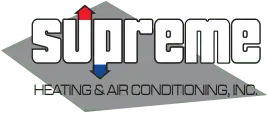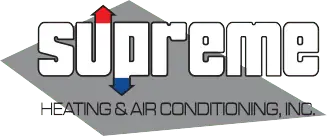In Martinsville, NJ, where both climate and daily usage put pressure on plumbing systems, understanding your home or business’s drainage systems is key. Get ready to dive deep into the essentials of plumbing drains and ensure your system is ready for anything!
Understanding Your Drainage System 🚰
Your home’s drainage system is ingeniously designed to ensure that wastewater exits your property efficiently and hygienically. Understanding the components of this system and how they interact can help you maintain it effectively and prevent potential issues.
Main Components of Your Drainage System
- Drain Pipes or Drain Line: These are the fundamental conduits that carry wastewater away from your home. Whether from your kitchen, bathroom, or laundry room, all drain pipes converge to a main drain line that leads to the municipal sewer system or your private septic system.
- Traps: These are typically U-shaped, S-shaped, or P-shaped sections of pipe located beneath sinks, toilets, and all other fixtures. Traps play a crucial role in maintaining a hygienic environment. They hold a small amount of water after each use, creating a seal that prevents sewer gasses and odors from rising back into the home. This simple but effective mechanism is vital for both your comfort and health.
- Vent Pipes: Often overlooked but critical, vent pipes extend from your drainage pipes through the roof of your home. They regulate the air pressure within your drain pipes, preventing the vacuum effect that can disrupt the flow of proper drainage. They also channel any sewer gasses safely out above the roof, keeping the air inside your home clean.
- Cleanouts: These are access points within the drainage system that allow for the removal of blockages or build-up of substances and excess water. Positioned strategically at various points, cleanouts are essential for maintenance because they provide direct access to your drain pipes without the need for disruptive and costly excavation.
How Your Drains Work 🔧
Let’s trace the journey of wastewater as it travels from your home to the sewer:
- From the Fixture: It all starts when you use water in your home, whether from flushing a toilet, taking a shower, or washing dishes. The water and any waste materials enter the drainage system through fixtures equipped with traps.
- Through the Traps: As wastewater flows through these traps, the water barrier is maintained, which prevents any sewer gasses from traveling back up the pipes and into your home.
- Down the Drain Pipes: Driven by gravity, the wastewater travels downwards through the network of drain pipes, converging towards the main sewer line of your house.
- Out through the Main Line: This main line carries all the wastewater from your home out to the public sewer system or your private septic tank. Here, it is either treated by the municipal system or processed by your septic system.
The Silent Efficiency
Your home’s drainage system operates silently in the background, yet it performs several critical functions that contribute to your household’s health and safety. By understanding how each component works and what it does, you can better appreciate the complexity and importance of this often invisible system. Knowing how to maintain and troubleshoot minor issues also helps you keep everything running smoothly, preventing potentially serious and expensive problems down the road.
Common Issues and How to Spot Them 🔍
Being familiar with the common issues that can affect your drainage system allows you to identify and address them early, preventing minor problems from escalating into major, costly repairs. Here are the key signs to watch for and what they might indicate about the health of your drainage system:
Slow Draining
One of the most noticeable signs of a problem in your drainage system is when water starts draining slowly from your sinks, bathtubs, or showers. This issue typically points to a blockage somewhere in the pipes. Blockages and clogged drains can be caused by a variety of materials, such as accumulated hair, soap scum, food debris, or even small objects that have accidentally been washed down the drain. Over time, these materials can build up, narrowing the passage within the pipe and impeding the flow of water.
- How to Spot: Standing water. Water pools and takes longer than usual to drain away. You might also notice that this issue gets progressively worse over time.
Gurgling Sounds
Gurgling sounds coming from your drains, toilets, or plumbing vents can be alarming. These noises are often due to venting issues within the drainage system. Proper venting is crucial to allow air to follow the water and waste through the pipes. If the vent is blocked or improperly installed, air gets trapped and then released intermittently, causing these gurgling noises.
- How to Spot: Listen for unusual noises that occur when flushing the toilet or draining water from sinks and bathtubs. It may sound like your plumbing is struggling to breathe.
Bad Odors
Persistent bad odors emanating from your drains can be particularly unpleasant and are a common symptom of issues within your drainage system. These smells often originate from a dry trap, which means the water seal that prevents sewer gasses from rising up through the pipes has evaporated or leaked. Alternatively, the odors could be due to a blockage deep within your system where decomposing organic matter releases foul-smelling gasses.
- How to Spot: Notice if the smell persists even after cleaning and using odor-removal products in your drains. The odor is typically a sewer-like or rotten smell that can permeate the area near the affected fixture.
Proactive Observations and Quick Actions
Recognizing these signs early and taking appropriate action can prevent the issues from worsening. For slow drains, a simple plunger or plumber’s snake might clear the blockage. If gurgling sounds or bad odors persist, however, it may indicate a more complex problem that requires professional attention. Regular maintenance can also help keep your drainage system in good working order.
By keeping an eye (and ear) out for these common signs, you can maintain a healthier drainage system, enhancing your home’s overall plumbing health and avoiding the inconvenience and expense of major repairs.

Preventative Maintenance Tips 🛠️
Maintaining your drainage system doesn’t have to be complicated or time-consuming. Here are some straightforward, effective strategies to keep your drains flowing freely and minimize the risk of plumbing emergencies:
Regular Cleaning
One of the easiest and most effective ways to prevent clogs is to keep your drains clean:
- Avoidance: First and foremost, be mindful of what goes down your drains. Avoid flushing anything that doesn’t break down easily, such as cooking oils, grease, and non-biodegradable materials.
- Routine Flushing: Periodically run hot water through the drains after each use. This can help prevent the buildup of oils and soap residue that might otherwise accumulate and cause blockages.
- Natural Cleaners: For a more thorough cleaning, use a mixture of baking soda and vinegar once a month. Pour half a cup of baking soda followed by half a cup of white vinegar down the drain. After 15 minutes, flush with boiling water. The chemical reaction helps break down fatty acids and keeps your drains smelling fresh.
Use Strainers
Placing strainers in all your sinks is a simple yet powerful way to catch debris before it becomes a problem:
- Installation: Ensure that all drains, especially those in the kitchen and bathroom, have strainers that fit well and cover the entire drain opening.
- Maintenance: Clean these strainers regularly by removing debris that has been caught, which will keep water flowing smoothly and prevent material from entering your plumbing system.
Scheduled Inspections
Regular professional inspections are key to a long-lasting and healthy drainage system:
- Routine Checks: Have professionals like Supreme Heating and Air Conditioning inspect your plumbing system at least once a year. They can check for leaks, corrosion, and other potential issues that aren’t always visible but could lead to bigger problems down the line.
- Early Detection: Professional plumbers use tools and techniques to spot issues that might not be apparent during daily use. Catching and fixing these problems early can save you significant money and inconvenience.
DIY Basics for Simple Problems 🧰
For those who are handy around the house, here are a few DIY fixes that can address minor issues without the need for professional help:
Plunging
A plunger is often your first line of defense against clogs:
- Technique: Make sure to use a good quality plunger and create a firm seal around the drain. A few vigorous pumps are often enough to dislodge simple blockages.
Boiling Water
This is one of the easiest ways to maintain your drains:
- Regular Maintenance: Pour boiling water down the drain weekly to help dissolve any build-up of soap, grease, and hair.
Baking Soda and Vinegar
This dynamic duo can be your go-to for natural cleaning:
- Process: As mentioned earlier, the fizzing action of baking soda mixed with vinegar can help break down minor blockages and deodorize your drains.
When to Call a Professional 👨🔧
While regular maintenance and simple DIY fixes can handle many common plumbing issues, there are times when professional intervention is crucial. Knowing when to call in the experts can save you from potentially exacerbating a problem, leading to costly repairs or even serious damage to your home’s plumbing infrastructure.

Persistent Problems
If you find that the same issue keeps recurring—whether it’s a drain that continually clogs, a toilet that frequently backs up, or a sink that always seems to drain slowly—this could be a sign of a deeper, more complex problem within your plumbing system. Persistent issues often indicate significant blockages, improperly installed pipes, or old plumbing that needs more than just a superficial fix.
Severe Blockages
When basic methods like plunging, boiling water, or baking soda and vinegar don’t clear a blockage, it’s likely severe and deep within your system. Severe blockages can cause your drains to back up, leading to water or sewage spilling into your home. This situation not only poses health risks but can also cause significant damage to your property. Professional plumbers have specialized tools like motorized drain augers and hydro-jetting equipment, which are highly effective at removing tough blockages.
Sewer Line Issues
Problems with your sewer line are serious and can escalate quickly. Signs of sewer line issues include multiple drains backing up at once, bad sewage smells coming from your drains, or soggy patches in your yard. These symptoms may indicate a break, blockage, or collapse within your sewer line, which could compromise the entire home’s drainage system. Sewer line repairs can be complex and typically require professional diagnosis with video inspection tools to pinpoint the exact location and nature of the issue.
Significant Water Pressure Problems
If you experience sudden or significant changes in water pressure throughout your home, this could be an indication of major issues with your main water line or internal plumbing. Changes in pressure can stress your plumbing system and lead to leaks or burst pipes if not addressed promptly.
Water Damage or Mold
Any signs of water damage or mold around pipes, in basements, or along walls and ceilings should be addressed immediately. Water damage can weaken structural elements of your home and mold can pose health risks to your family. Professionals can identify the source of leaks and provide solutions that not only fix the issue but also prevent future occurrences.
Expertise Matters
Professional plumbers have the training, tools, and experience to diagnose complex problems and provide effective, long-lasting repairs. They ensure that work is done in compliance with local building codes and standards, which is essential for your safety and the integrity of your home’s plumbing system. Moreover, professional intervention often comes with warranties for the work performed, giving you extra peace of mind.
Don’t Risk Further Damage
Attempting to tackle major plumbing issues on your own can result in further damage to your system, increasing the costs and complications of repairs. When in doubt, calling a professional is not just a choice—it’s a necessary step to ensure the health of your home’s plumbing system and the safety of its inhabitants.
Your Home’s Drainage Decoded!
Now that you understand the basics of your drainage system, you’re better equipped to manage and maintain it effectively. Remember, a well-maintained drainage system is key to a comfortable, safe, and sanitary home in Martinsville, NJ.
Keep Your Drains Supreme!
Don’t wait for drainage disasters! Contact Supreme Heating and Air Conditioning today to schedule your comprehensive plumbing inspection. Keep your system flowing smoothly with our expert services, ensuring peace of mind all year round. We also offer top-quality HVAC services. Call now and guarantee your home’s comfort and safety with the best in Martinsville!


